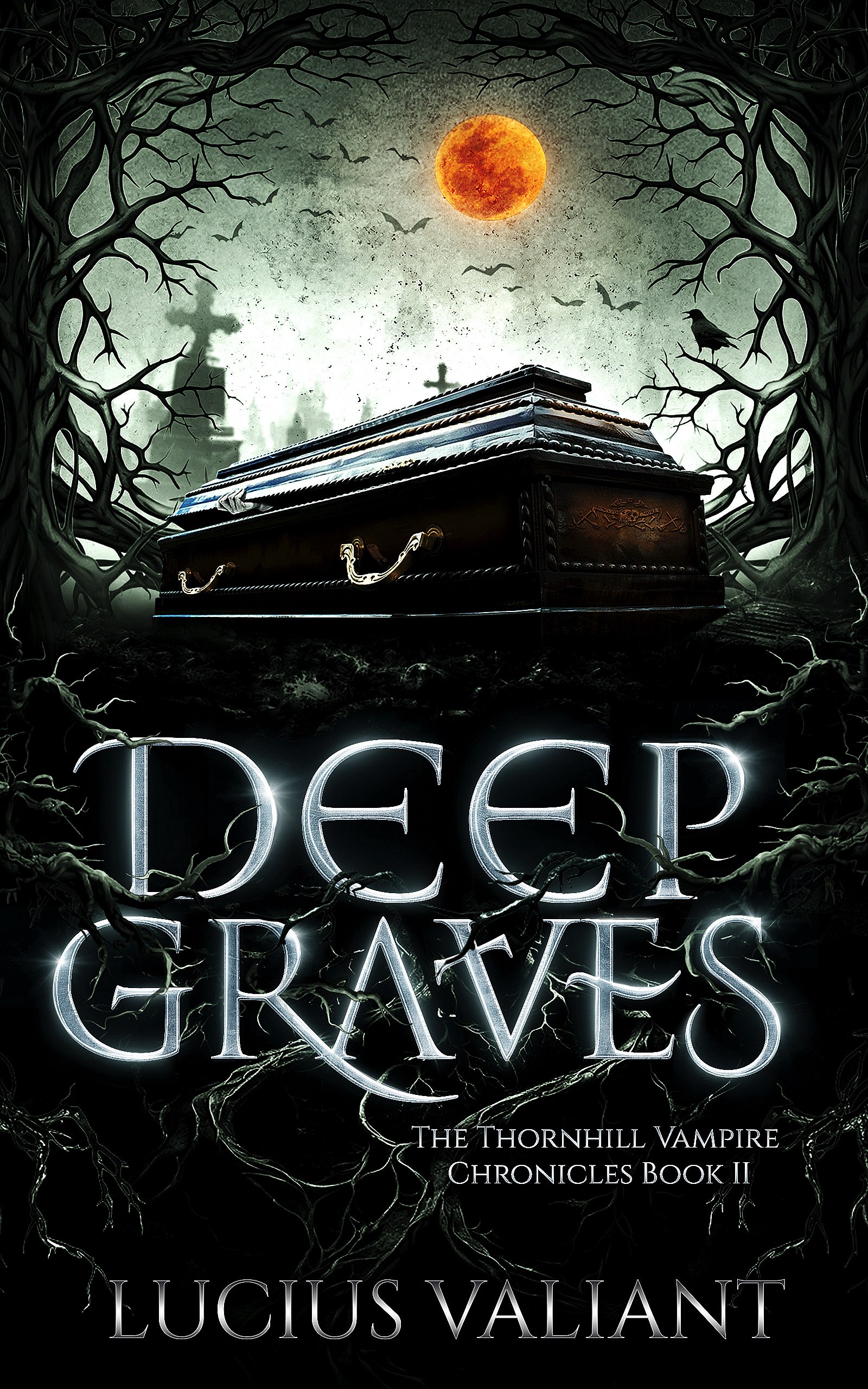Deep Graves
Lucius Valiant

My Review
My journey into the dark, gothic world of Lucius Valiant’s Thornhill Vampire Chronicles continues with the second book of his series---Deep Graves. His first book, which I reviewed here, introduced us to vampire hunter Harlan Thorne. While it left me thoroughly entranced with his fast-paced, beautifully depicted narrative, it did end with some open tangents. Most notably, we didn’t get closure on Harlan’s upcoming hearing in the Van Helsing society.
So, I dove into the second book assuming it would pick up Harlan’s journey where the first left off, but imagine my surprise when I discovered the protagonist here was someone else entirely.
Yes, I didn’t bother to read the blurb. And also, while a surprise, I am not necessarily complaining. Because this book elevates Gabriel to a much more nuanced and complex character, and I found his struggles fascinating.
“Yes, I know, I’m a complicated villain.”
Out of necessity, this review will include some spoilers about the first book, so if you haven’t read it - please come back to this after reading Dark Roots.
“As I walked on, Thornhill Mansion grew larger and larger in my view - an obnoxious and monstrous building, a perfect reflection of the Thornhill family itself.”
From the last book, we know Gabriel Graves, our new protagonist, as the orchestrator of the elaborate plan to resurrect his lost sister in the stolen body of another vampire. After the events of the last book, he doesn’t retreat into the shadows defeated. Rather, he takes his plan to a whole new level of insanity.
“They’re places where souls can rest, but perhaps also where souls can be reborn.”
When I picked the second book, I had gone in fully expecting Lucius’s immersive, brisk presentation. No surprises there - the author’s narration retains all the qualities I loved in the first.
What I didn’t expect was a modern-day vampire taking a plunge through a rift in time, and travelling back to London in 1665. In the first book, the exploration of the Thornhill family’s past had been the device to interleave the past and present. In this book, we see a similar interleaving, but now through Gabriel’s eyes as he re-experiences his own past.
“The earth smelled damp, dark, and deep - the best smell in the world. Well, it comes second after the coppery smell of blood gushing from a freshly torn artery.”
As plans often do, Gabriel’s original idea to travel back in time and quickly transform and extract his sister rapidly devolves into a series of unfortunate complications. The biggest inconvenience being he is no longer a vampire and must, once again, deal with the frailties of mortal life. That’s quite a pickle, since the era he has chosen to go back to, happens to coincide with the arrival of the second wave of the black plague.
“There truly is a lot of dreary maintenance work involved in having a mortal body.”
Over the course of the story, he has to repeatedly rethink the choices he will make. His familiarity of how events would unfold in the days, weeks, months and years to come should have been a distinct advantage. However, as you might anticipate, the ripple of consequences erupting from every change he inflicts upon the world changes the trajectory of both his own life, as well as the lives of others close to him. In some cases, rather drastically.
“You talk of devastation, but devastation is merely the unforgiving truth of mother nature.”
I had anticipated that this book would, in some manner, involve an exploration of the Victorian era. But I totally didn’t expect myself walking through a city devastated by plague, in the stolen garb of a plague doctor, vandalizing the homes of the rich and prosperous while also bantering on moral conflicts with the ghost of a woman yet to be born. Yes, all of those happen. If that doesn’t convince you to go running to grab the book, I don’t know what can.
Lucius is one of those few authors for whom every part of the writing resonates with me. I loved the poetic prose, I smiled at the silly grave puns, I chuckled every time Gabriel woke up and hit his head on the ceiling. It worked---the story, the presentation, the pacing---all of it.
“the Black Death reaps its harvest, and I am simply the reaper collecting my due. There’s no sin in that.”
Looks like in the next book of the series, Foul Moon, we will get back to the long-awaited journey of Harlan Thorne, and I am eagerly looking forward to it. I am also not sure if the author has written/planned a similar detour on Thomas’s “alternate route to immortality”. That is something I’d absolutely love to read.
